James was riding his electric skateboard along the bike path to work, as he did every day, when he was suddenly pulled over by a police officer. Though he had ridden the same route without incident for months, the officer cited James for illegally operating an unregistered motor vehicle on the path, fining him $200. James was shocked to learn electric skateboards occupied such a legal grey area, with regulations varying widely across states and even cities.
This type of scenario is increasingly common as electric skateboards skyrocket in popularity while laws scramble to keep up. With a compound annual growth rate (CAGR) of 8.14% from 2022 to 2028, the size of the worldwide electric skateboard market is expected to increase from USD 309.25 million in 2022 to USD 494.45 million. Riders praise them as affordable, sustainable transportation, but the motorized nature of the boards confuses their classification under state vehicle codes. Read on for a breakdown of the complex legal territory surrounding where and how you can ride electric skateboards across the United States.

Background on Electric Skateboards
E-skateboards operate via small in-wheel or belt-drive motors that propel a traditional skateboard deck at speeds averaging 15-25 mph. Riders control speed and direction via a handheld wireless remote that communicates with the board. Most models run off rechargeable lithium batteries, with ride times ranging from 5 to over 15 miles on a single charge. They also feature adjustable speed modes and regenerative braking ability.
Though rudimentary non-motorized boards first emerged in the 1950s as an offshoot of surfing culture, the first patented electric skateboard debuted in 1975, created by Nanjing-based inventor Lan Zhang using lead-acid batteries. Modern lithium battery advances later enabled the lighter, faster e-skateboard models currently dominating market sales.
Electric skateboards have become an increasingly popular mode of micro-mobility transportation and recreation across the United States in recent years. Though exact figures are difficult to ascertain, there is substantial growth in electric skateboard use on streets, college campuses, trails, and pedestrian spaces nationwide. The electric skateboard phenomenon reflects shifting attitudes toward mobility while inviting innovations in sustainability.
Laws and Regulations Surrounding Electric Skateboards
The laws governing electric skateboards are lagging well behind technological advancements, but as these boards become more popular, regulators will inevitably have to take action. In the US, electric skateboards are still illegal in most states.
Still, there are a few legal locations in the US where you can ride an electric skateboard, including California, Michigan, Texas, etc.
The usage of e-boards is not restricted or allowed by any federal laws. This is not to say that people are free to do as they choose since there is no law; quite the contrary. Unfortunately, electric skateboards do not meet the minimal design standards required for any kind of vehicle to be allowed on the road.
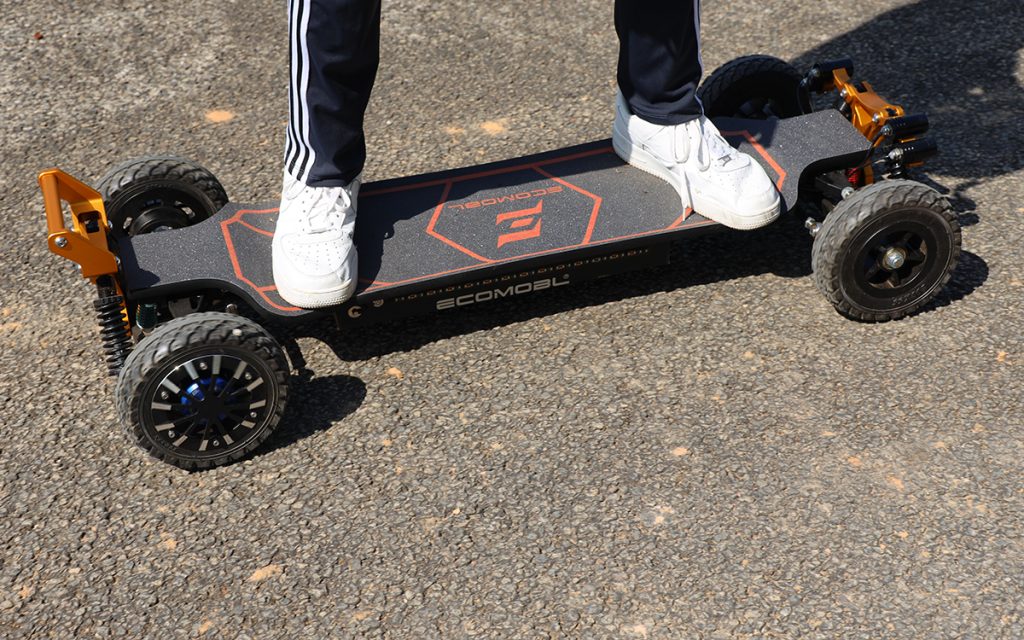
Factors Influencing Legality
Local authorities grapple with appropriate classifications for electric skateboards as vehicles, bicycles, pedestrians, or even toys. Their speeds exceed average pedestrian paces of 2-3 mph, but e-boards offer none of the safety mechanisms considered standard equipment for motor vehicles.
Opponents argue that e-skateboards’ 15-25 mph speed capacities raise safety concerns regarding instability at high velocities, lack of rider protection elements, and inability to brake rapidly compared to bikes or cars. Proponents counter that, in addition to using safety equipment such as helmets, gloves, and front/rear LED lights, these problems can be adequately addressed by controlling speed.
Debates similarly rage around public rights of way. Supporters lobby for sidewalk and bike lane access since e-boards allow compact, sustainable mobility like bikes. But critics emphasize their motorized nature warrants similar restrictions as mopeds or motorcycles. Insurance liability requirements remain entirely unclear due to their classification status as neither toy nor vehicle.
The legality of electric skateboards varies depending on the country, state/province, and local regulations. In many places, electric skateboards are legal for use on public roads, sidewalks, and bike lanes, provided riders adhere to certain speed limits, age restrictions, and safety requirements. However, there are also areas where electric skateboards are subject to restrictions or outright bans, particularly on roads with higher speed limits or in densely populated urban areas.
Riders need to familiarize themselves with the specific laws and regulations governing electric skateboards in their area to ensure compliance and avoid potential fines or penalties. This may involve researching local traffic laws, consulting with local authorities or transportation agencies, and staying informed about any recent updates or changes to regulations regarding electric skateboards.
Are Electric Skateboards Legal in California, USA?
Electric skateboards are generally legal to ride in California, but there are specific regulations that riders need to adhere to. Here are some key points regarding the legality of electric skateboards in California:
| Aspect | Description |
|---|---|
| Age Limit | Similar to other regions, there may be age restrictions for operating electric skateboards, typically requiring riders to be at least 16 years old. |
| Helmet Requirement | In many provinces and territories, wearing a helmet while riding an electric skateboard is mandatory for riders of all ages. |
| Speed Limit | Some areas may have speed limits for electric skateboards, often capping the maximum speed at 20 km/h (12 mph) or lower. |
| Location Restrictions | Electric skateboards may be permitted on roads, bike lanes, or trails, but restrictions may apply in certain areas, such as sidewalks or pedestrian-only zones. |
| Equipment Requirements | Depending on the jurisdiction, electric skateboards may need to be equipped with lights, reflectors, or other safety features, especially if ridden at night. |
It’s important to note that regulations may vary by city or municipality within California, so riders should check with local authorities to ensure compliance with any additional restrictions or requirements in their area. Additionally, laws and regulations may change over time, so riders should stay informed about any updates or revisions to electric skateboard regulations in California.
Are Electric Skateboards Legal in New York (NYC)?
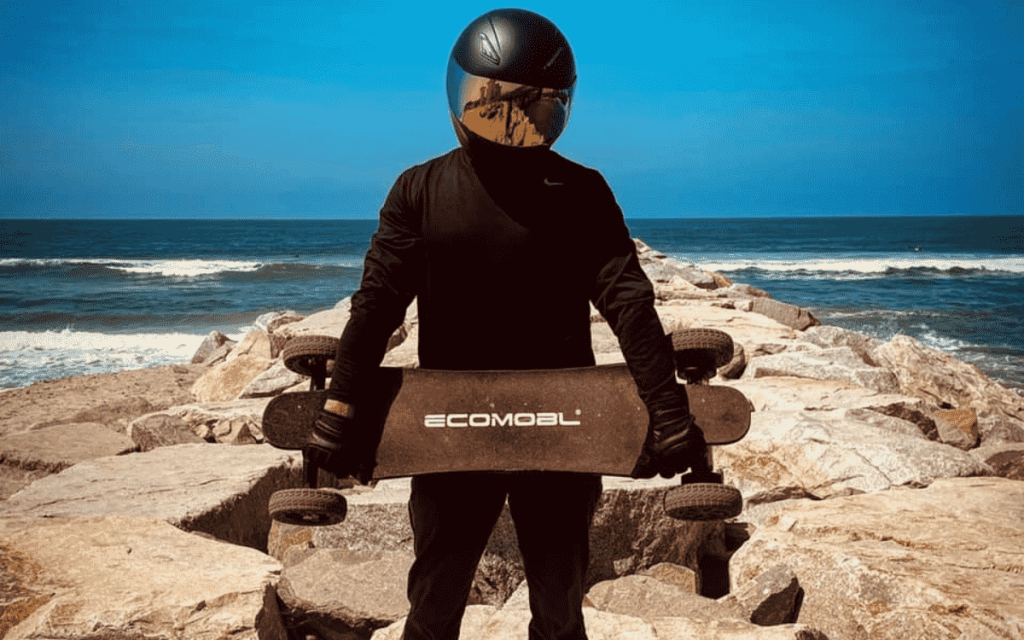
The legality of electric skateboards in New York City and New York State is subject to various regulations and restrictions. In New York City, electric skateboards are generally prohibited from use on public roads, sidewalks, and bike lanes, classified as motorized vehicles under local traffic laws. However, the specific regulations may vary by borough, and enforcement practices can differ.
In other parts of New York State, electric skateboard legality may depend on local ordinances and regulations, with some areas allowing their use on certain roads or trails while others may impose restrictions or prohibitions. Riders in New York must familiarize themselves with the relevant laws and regulations governing electric skateboard usage in their area to ensure compliance and avoid potential fines or penalties.
| Aspect | Description |
|---|---|
| New York City | Electric skateboards are generally prohibited from use on public roads, sidewalks, and bike lanes, classified as motorized vehicles under local traffic laws. Enforcement may vary. |
| New York State (Outside NYC) | The legality of electric skateboards may vary depending on local ordinances and regulations, with some areas allowing their use on certain roads or trails. Riders should verify local regulations. |
USA State-by-State Breakdown of Laws
State-by-State Breakdown of Laws:
- California – Permitted under 500W power cap with under-18 helmet mandate
- Colorado – Permitted, but DOT is working on restrictions around 2020
- New York – Completely banned under state traffic codes
- Florida – Varies by the municipality; Orlando permits with restrictions
- Illinois – No state laws, but Chicago completely prohibits the use
- Texas – No restrictions except under-18 helmet requirements
- Oregon – Permits electric skateboards under bike/pedestrian laws
- Ohio – No state-wide policy, but Cleveland bans on public roads
- Massachusetts – Restricts riding speeds to 25mph
- Arizona – Leaves policy decisions to individual cities
- Georgia expressly prohibits on all public roads and sidewalks
- Hawaii – Permits slow models only, under 15mph speed
This breakdown shows how widely laws differ from state to state. Some states, like California, take a permissive stance, while New York bans electric skateboards entirely. Still, other states leave policy decisions in the hands of local city governments. So, individual research is crucial before riding in unfamiliar areas.
Other countries…
Are Electric Skateboards Legal in Canada?
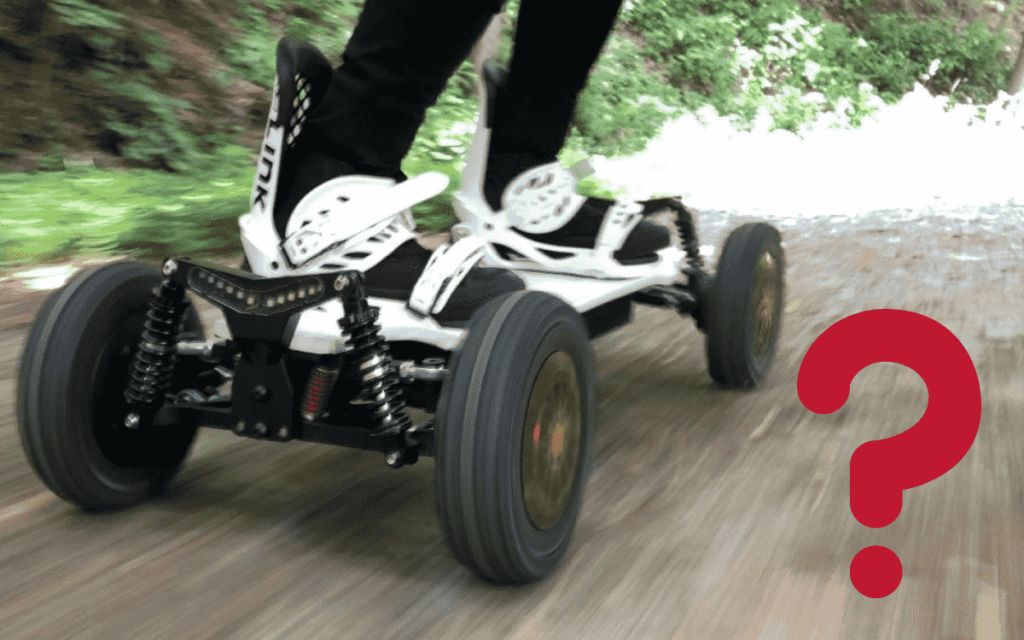
The legality of electric skateboards in Canada varies by province and municipality, and regulations may continue to evolve. Generally, electric skateboards are legal for use in many parts of Canada, but riders should be aware of specific regulations that may apply in their area. Here are some key points regarding the legality of electric skateboards in Canada:
| Aspect | Description |
|---|---|
| Age Limit | Typically requires riders to be at least 16 years old. |
| Helmet Requirement | Mandatory for riders of all ages in many provinces and territories. |
| Speed Limit | Maximum speed may be capped at 20 km/h (12 mph) or lower in some areas. |
| Location Restrictions | Electric skateboards may be permitted on roads, bike lanes, or trails, but restrictions may apply in certain areas such as sidewalks or pedestrian-only zones. |
| Equipment Requirements | May need to be equipped with lights, reflectors, or other safety features, especially if ridden at night, depending on the jurisdiction. |
Are Electric Skateboards Legal in Japan?
The legality of electric skateboards in Japan can be complex and may vary depending on the specific region and local regulations. In general, electric skateboards are not explicitly regulated under Japanese traffic laws, which means there is often uncertainty regarding their legality.
Some cities in Japan may allow electric skateboards to be used on roads, sidewalks, or designated bicycle lanes, while others may have restrictions or prohibitions in place. Additionally, certain safety requirements, such as wearing helmets or using lights at night, may be enforced in some areas.
Riders need to research and understand the specific regulations governing electric skateboards in their area of Japan to ensure compliance and avoid potential fines or penalties. Consulting local authorities or transportation agencies can provide clarification on the legality and usage guidelines for electric skateboards in a particular region.
Are Electric Skateboards Legal in the United Kingdom (UK)?
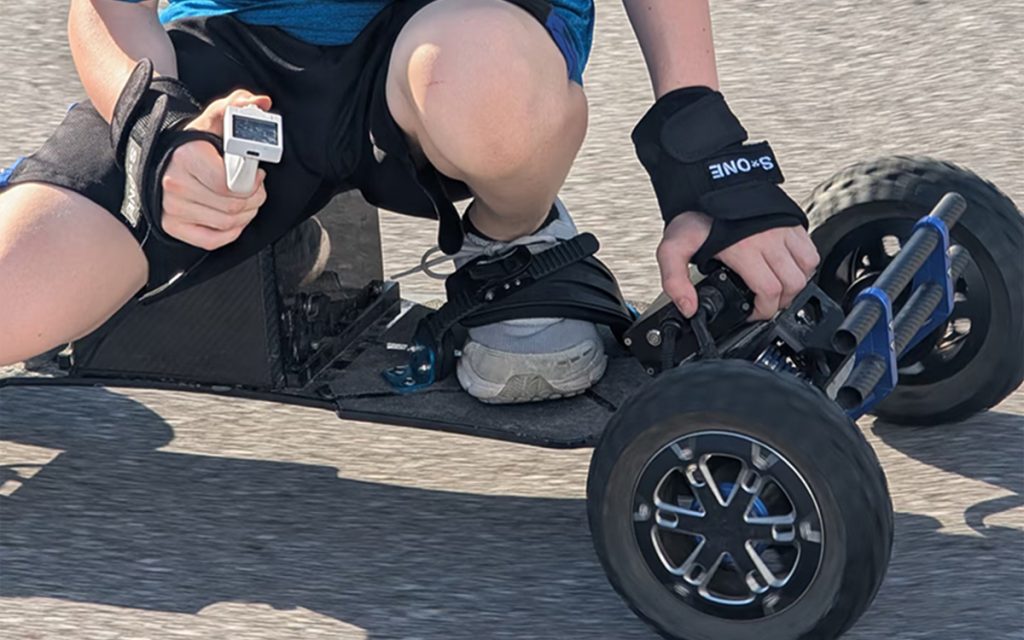
Electric skateboards are legal to use in the UK, but there are specific regulations that riders need to adhere to. Here are some key points regarding the legality of electric skateboards in the UK:
| Aspect | Description |
|---|---|
| Classification as PLEV | Electric skateboards are classified as Personal Light Electric Vehicles (PLEVs) by the UK government. They are subject to regulations outlined in the Road Traffic Act and the Highway Code. |
| Requirements for Road Use | Electric skateboards must meet certain requirements to be used legally on public roads, including having working lights (front and rear), reflectors, and a maximum speed of 15.5 mph (25 km/h). Riders should also wear appropriate safety gear, such as helmets and reflective clothing. |
| Use on Pavements and Cycle Lanes | Electric skateboards are not permitted on pavements (sidewalks) but can be used on cycle lanes and cycle tracks. However, riders should be aware of local regulations and restrictions that may apply. |
| Age Restrictions | There are no specific age restrictions for riding electric skateboards in the UK. However, riders are encouraged to be responsible and considerate of other road users. |
| Insurance and Licensing | Electric skateboard riders do not require insurance or a license to ride on public roads, but they must comply with all relevant traffic laws and regulations. |
It’s important for riders to understand the specific regulations regarding electric skateboard use in their area and to always ride responsibly and safely. Additionally, since regulations may change over time, riders should stay updated on any revisions or changes to electric skateboard rules in the UK.
Are Electric Skateboards Street Legal?
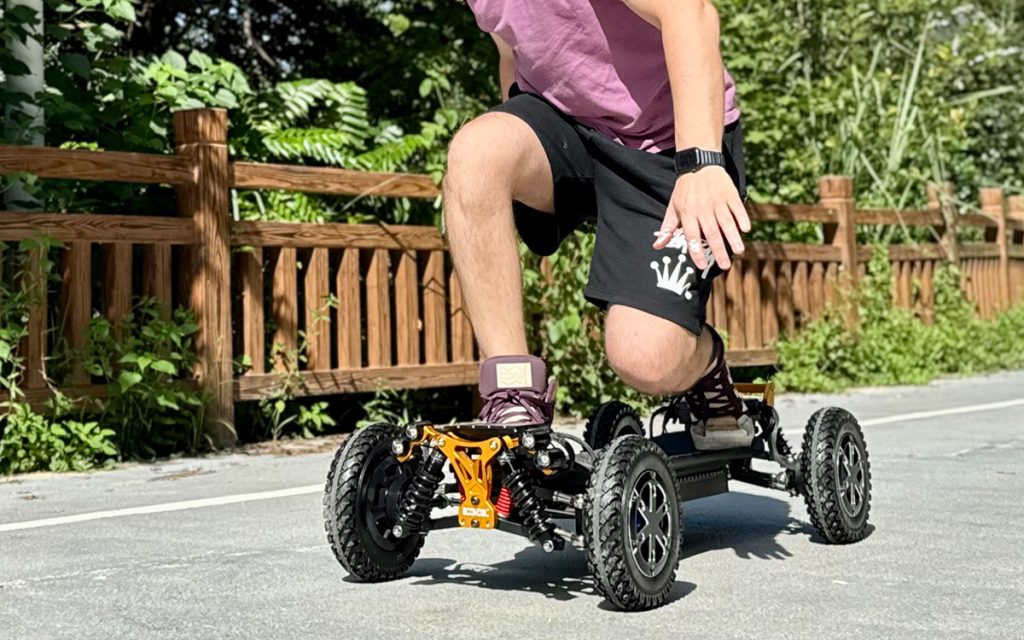
Whether electric skateboards are street legal depends on the specific regulations and laws of the jurisdiction in which they are being used. In many places, electric skateboards are considered street legal if they adhere to certain criteria, such as speed limits, equipment requirements (e.g., lights, reflectors), and usage restrictions (e.g., where they can be ridden, age restrictions).
Outlook Ahead
As electric skateboards transition from novelty to mainstream mobility choice, usage conflicts will continue prompting legislation. Groups like the Electric Boarder Society lobby for expanded e-board access to bike lanes, paths, and recreational areas. But others, like the Coalition for Micromobility Safety, push for tighter regulations around speed limits, licensing requirements, and mandatory protective equipment.
Recent trends indicate state policies are likely shifting towards aligning electric scooters, skateboards, and bicycles under common codes as “micromobility” options. But inconsistencies will remain on the municipal levels.
For now, e-skateboard operators must research regional ordinances thoroughly, take safety precautions, and remain cautious when crossing jurisdictions with varying rules. But with projections expecting over 25 million electric skateboards traversing American sidewalks and roadways by 2030, changes to today’s fragmented legal landscape appear imminent.
Final Thoughts
Electric skateboards occupy an uncertain legal classification between a pedestrian, a toy vehicle, and a motorcycle. For users hoping to avoid hefty fines, familiarity with hyper-specific state law statutes and city ordinances remains crucial. Looking ahead, electric skateboard manufacturers will likely work closely with state and local officials to craft sensible mobility policies rather than outright bans. But until then, extreme caution when riding electric skateboards is highly advised across unfamiliar areas.




